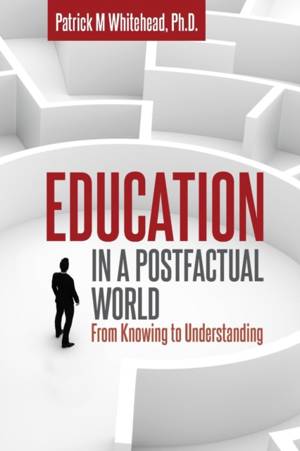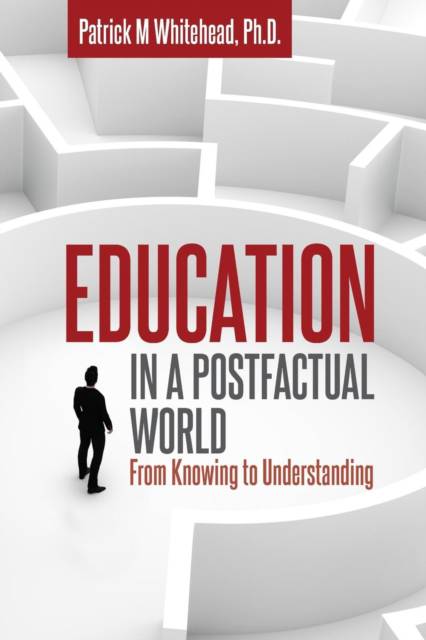
- Retrait gratuit dans votre magasin Club
- 7.000.000 titres dans notre catalogue
- Payer en toute sécurité
- Toujours un magasin près de chez vous
- Retrait gratuit dans votre magasin Club
- 7.000.000 titres dans notre catalogue
- Payer en toute sécurité
- Toujours un magasin près de chez vous
Education in a Postfactual World
From Knowing to Understanding
Patrick M WhiteheadDescription
In this book, Whitehead argues against the fact-minded orientation of education and the practice of science. It is not that facts are unhelpful, but they have become a substitute for learning (learning is now tantamount to fact memorization). This change handicaps students by eliminating the possibility of creativity, curiosity, and critical thinking; it handicaps science by limiting the kinds of questions that can be asked and where to look for answers; and ultimately puts people out of touch with their experience.
The problem is fact-mindedness. Facts are the relics of enlightenment thinking. They represent unbiased and unquestionable truth about our universe. The more you collect, the more you know; the more you know, the more powerful you are; the more powerful you are.... You get the picture.
It is a familiar theme from the middle of this past century, and has been described by contemporary physicists, theoretical biologists, continental philosophers, humanistic psychologists, learner-centered teachers, among many, many others. Unfortunately, college students are seldom exposed to these ideas, and have to wait until they reach graduate school before they wonder if their learning experience may have been different. The goal is to make those ideas accessible here by translating the cumbersome, obscure, and turgid expression of these ideas into twenty-first century examples that are more applicable and meaningful for undergraduates and the educated public.
It is argued that judgment must always be applied to matters of fact. That is to say, the fact is not the end of the story. That gravity compels bodies does not substantiate itself: it is a way of describing the relationships between bodies. Gravity helps us better understand physical relationships, but by itself and outside of any meaningful context that fact of gravity is useless.
Spécifications
Parties prenantes
- Auteur(s) :
- Editeur:
Contenu
- Nombre de pages :
- 256
- Langue:
- Anglais
Caractéristiques
- EAN:
- 9781627346856
- Date de parution :
- 12-02-18
- Format:
- Livre broché
- Format numérique:
- Trade paperback (VS)
- Dimensions :
- 152 mm x 229 mm
- Poids :
- 344 g







